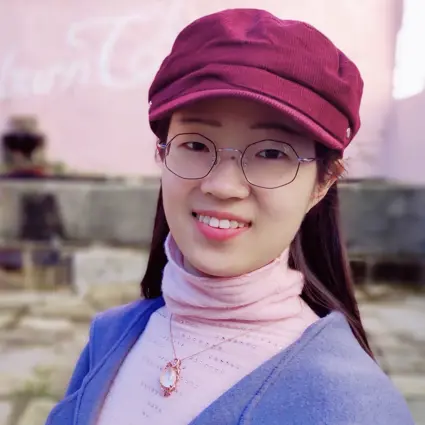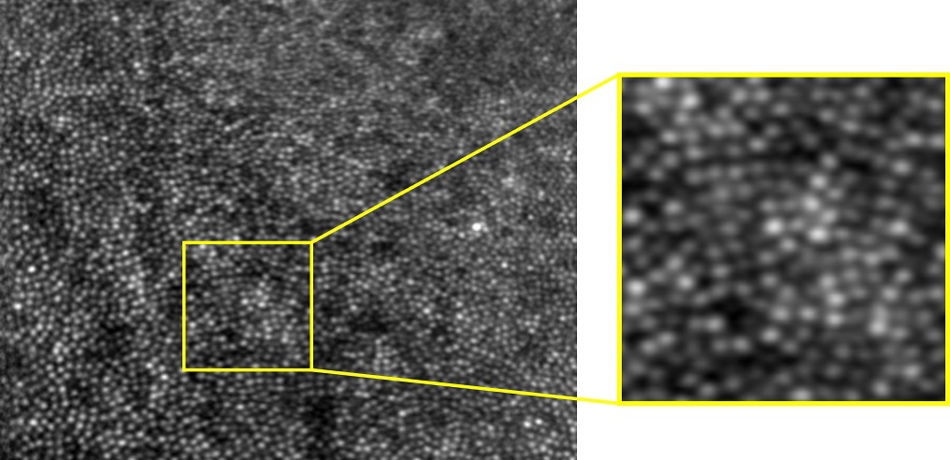Career Case Study - Dr Jiahe Cui, Department of Engineering Science, University of Oxford
Researcher Career Case Study

Dr Jiahe Cui - Optical Engineer
Making a career shift and becoming an expert
Jiahe joined the Department of Engineering Science in 2018 as a DPhil student and is now working as a joint postdoctoral research associate between the Department of Engineering Science, with Professor Martin Booth, and the Department of Experimental Psychology, with Professor Hannah Smithson.
Jiahe Cui joined the Department of Engineering Science in 2018 as a DPhil student and is now working as a joint postdoctoral research associate between the Department of Engineering Science, with Professor Martin Booth, and the Department of Experimental Psychology, with Professor Hannah Smithson.
Jiahe describes herself as an optical engineer, working in the field of vision science and retinal imaging, where she is building a complex multi functional adaptive optics scanning laser ophthalmoscope (AOSLO). This is the only instrument in Oxford that allows single cell imaging and stimulation of photoreceptors in the living human retina, and there may be only a handful of these in the world.
Jiahe’s DPhil physically took place in the Department of Pharmacology where she designed and developed a compact surgical microscope for neurosurgery, but with the support of Professor Martin Booth, her supervisor in Engineering Science, Jiahe went on to make quite a significant career shift into the field of vision science and retinal imaging.
Communicating effectively with your supervisor
She stressed how much she had benefitted from the trust and support she received from Professor Booth. “As a student it is really important to communicate effectively with your supervisor. Don’t be afraid to talk to them, tell them your concerns, tell them what your interests are and what you envisage yourself doing in the next few years.” As a result, Jiahe felt able to test her ideas rather than always proceeding along a planned pathway.
“Our supervisors are very busy, but do arrange meetings with them and make the most of those meetings", she advises.
"Prioritise what you’d like to discuss and make sure that your supervisor knows you, your strengths and weaknesses”.
Mutual understanding develops and enhances progress
“At the end of my DPhil, Martin knew I had a particular interest in biomedical imaging, and by chance there was a joint grant between himself in Engineering and Hannah in Experimental Psychology with an instrumentation post-doc position. The post required developing new optical systems in which I had experience, but it was in the field of ophthalmology which was new to me. Martin recommended that I apply for the role and I thought it would be fascinating to take on.”
“This was unexpected and very challenging as it involved designing and developing a complex retinal imaging system when I knew so little about vision science and even the eye itself.”
Since taking on the role however, Jiahe has become very positive about this interdisciplinary research, and has seen how mutual understanding has developed and enhanced progress. “Professor Hannah Smithson in Experimental Psychology, other vision scientists and everyone else in the group have been so helpful showing me their research and talking me through things I didn’t know. With their help I’ve been able to gain more understanding of vision science and I discovered too that they were very keen to learn about optics. The more I learned about current challenges in retinal imaging, the more it motivated me to proceed along this path and to make innovations using my optics background.”
No one can be an expert in everything
Significantly, Jiahe has learned to overcome any reticence about talking to more established researchers. “One thing that I'm learning to do much better now is to talk to people who are very senior in their field. No one can be an expert in everything, and everyone is keen to share their own experience and learn from that of others.”
“If you're attending a conference and there’s someone whose papers you have been reading, introduce yourself, say whose research lab you're from, shake hands and tell them about your research. Don’t be afraid. I’ve found that they’re always very keen to listen to young minds and are ready to provide support and advice.”
Unexpected opportunities
Having taken on the challenges of unexpected opportunities, Jiahe has welcomed the opportunity to become an expert. “Don’t be afraid to take on research that might seem hard at first. Building your own systems sounds intimidating and time consuming, but through this process, you become an expert and the system will form the core of so many downstream experiments.”
“As the person with the best knowledge of the system, others will come to you to discuss projects and this can lead to unexpected opportunities. As you go further along this route, it becomes more and more rewarding.”

Image of the perifoveal region of the living human retina captured from the Oxford adaptive optics scanning laser ophthalmoscope (AOSLO) built by Dr Jiahe Cui
